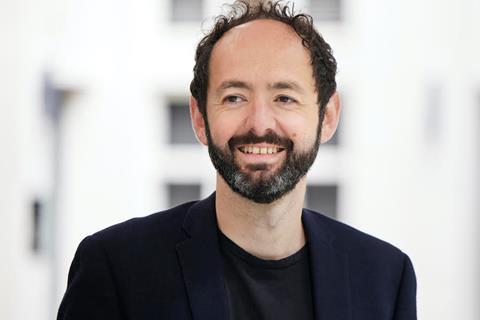
In his first year as artistic director of Cannes Directors’ Fornight, Julien Rejl explains why it is important to him the section has its own unqiue identity, what that identity is and why he made sure to say “non” to films refused by the Official Selection.
In your first year, what did you want to change and what aspects of the Directors’ Fortnight was it important that you take steps to preserve?
My aim is to go beyond the films that are expected in Cannes, beyond films scouted at co-production markets or that come from workshops or residencies. We did our prospection live, directly with the filmmakers. We specifically went out to find films we wouldn’t see everywhere.
I refused several films that were rejected from the Official Selection. It is important for me that our identity is different than other selections. It’s important for me that we don’t accept films that are potentially meant for Competition. I really hope that our films and our filmmakers represent the identity of Directors’ Fortnight and don’t blur the borders between the selections.
Can you talk a little about why you chose Cedric Kahn’s The Goldman Case to open and Hong Sangsoo’s In Our Day to close?
The Goldman Case was a real “coup de coeur” – we all loved it on the selection committee. That was a strong sign that if it had such strong enthusiasm, I felt the same enthusiasm could also be shared by audiences, professionals and press in Cannes.
The film resonates strongly with contemporary society and not just in France, but all over the world. Its themes of nationalism, anti-Semitism, police violence and the extreme left are global issues that were specific to the 1970s, but resonate today in many different countries. It’s a very effective, well-edited film with a lot of suspense. If a great work of cinema can connect to the world of today, I thought it was a great film to open the selection.
When I first saw In Our Day from Hong Sangsoo, I asked myself, “If I selected it, where would I put it?” Hong Sangsoo is one of the greatest modern filmmakers, he’s already a confirmed director, his films already travel to festivals so placing him in the middle of the selection wouldn’t have made much sense. Since there was so much enthusiasm for this film, we wanted to end on a lighter note to leave a joyous and euphoric aftertaste for audiences.
There are six films from female filmmakers, which is less than last year’s 11, but still significant. Are you conscious of choosing films specifically from female directors particularly among a more parity-focused revamp of the selection committee and SRF in general this year?
When it comes to looking for films, we need to pay attention to different types of films, always making sure that we screen enough films from women, from Latin America, from Asia, etc. When it comes to the selection process, I consider each work in terms of its singularity. If among the films we liked, they all happened to have been directed by women, I would have included 19 films from women, same if they had all been from men. The question of representation is the worst question to ask when selecting films. The selection was based on films we loved.
There are two films from women I think are very daring: Creatura [by Elena Martín Gimeno] and The Feeling That The Time For Doing Something Has Passed [by Joanna Arrow]. These are two films that deal with questions of sexuality in a very audacious, very unique way, with a great deal of freedom. They don’t adhere to today’s codes.
Which films do you think will stand out this year and spark debate?
I want the films to divide, to oppose, to spark debate. I don’t want a unanimity of the press or audiences. I want these to be films that people talk about.
There is a Russian film in the selection, Ilya Povolotsky’s Grace. Did you receive many films from Russia?
What’s shocking is we did receive several Russian films. What I think is great is that given the situation, there is a Russian independent cinema that is trying to keep cinema alive.
And Michel Gondry is back, both at Directors’ Fortnight (after 2012’s The We And The I) and with his first film in years. What is The Book Of Solutions about?
It’s a sort of auto-portrait where Michel isn’t afraid of showing a version of himself, with all of his faults or difficult personality. It shows a tremendous amount of honesty.
You mentioned part of your process was not only seeing 4,000 films, but also traveling to 20 countries to meet different filmmakers. Why is this an important part of the process and not simply judging the films on their own?
When I traveled to meet young filmmakers looking for financing or to develop their projects, they are often told on repeat that it is important to make films that reflect social realities. I came with an approach more focused on the uniqueness of each film and new forms of writing. I shared my editorial approach, I talked about how the Directors’ Fortnight is different than other selections and our identity. It’s my way of finding new talents. I say, “If you see yourselves in what I describe, then send us your films.”






![The Brightest SunScreen[Courtesy HKIFF]](https://d1nslcd7m2225b.cloudfront.net/Pictures/274x183/3/5/0/1448350_thebrightestsunscreencourtesyhkiff_312678.jpg)


















No comments yet